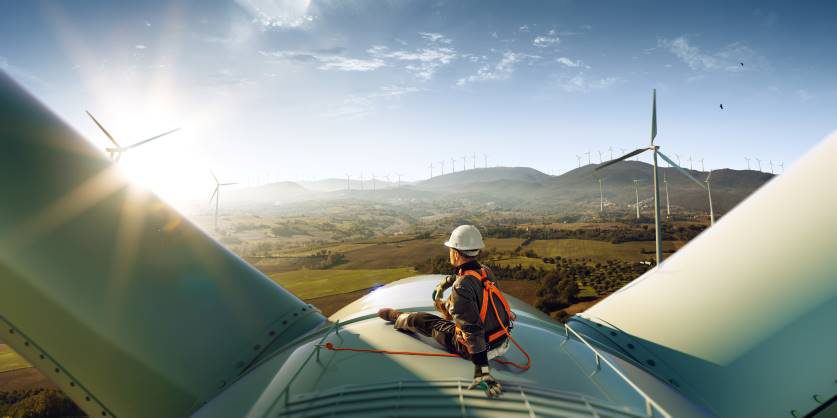
SSE has called on the government to invest more in wind power, as the company announced a profit for the first half of this year.
The chief executive of SSE has told the government it needs to invest more money into wind power in order to meet its 2050 net-zero carbon emissions target. He claims that extra investment is needed along with the reintroduction of subsidies for onshore wind power to help the UK to decarbonise its economy.
The Big Six energy supplier is already in a transition from using fossil fuels to renewable energy and will close its last remaining coal-fired power plant in Fiddler’s Ferry by March next year. Back in September, the firm also secured the rights to build the UK’s largest offshore wind farm off the east coast of England, while it will also construct the second-largest wind farm in Scotland off the coast of Fife.
“The climate emergency needs action now and offshore wind has proven itself to be one of the most cost effective ways this country can decarbonise and get on the road to net zero,” said Alistair Phillips-Davies, chief executive of SSE.
“Coupled with lifting the moratorium on onshore, the next government could deliver at least another 10GW of clean, green energy, before the end of its term – enough to power over seven million homes. SSE is committed to investing in low carbon infrastructure and the next five years are critical if the UK is to take climate action.”
SSE announced profits of £128.9 million over the first six months of 2019, compared to a £284.6 million loss over the first half of last year. These are the first results published by the firm since it agreed to sell its domestic energy retail division to Ovo Energy for £500 million in September. The deal is expected to be completed early next year.
“SSE is progressing well in the execution of its low-carbon strategy with the sale of SSE Energy Services leading to a group more focused on renewable energy and regulated electricity networks,” said Richard Gillingwater, Chairman of SSE.
“Clearly some headwinds remain in the sector with political uncertainty and aspects of UK government policy being subject to judicial process, however, we have strong optionality to create value through the low carbon transition and deliver our divided commitments.”




